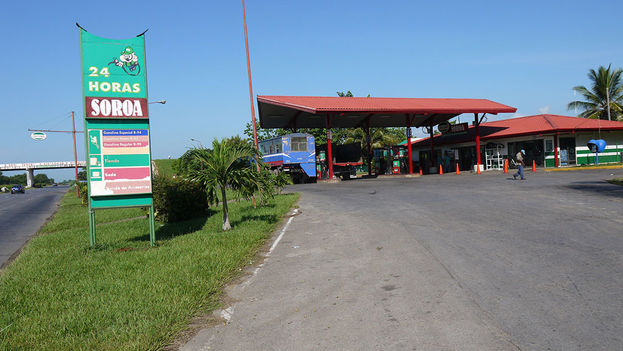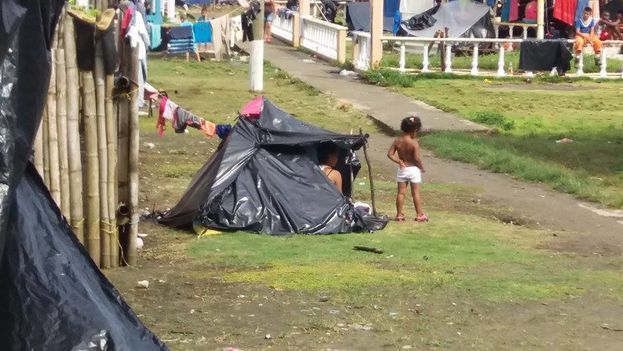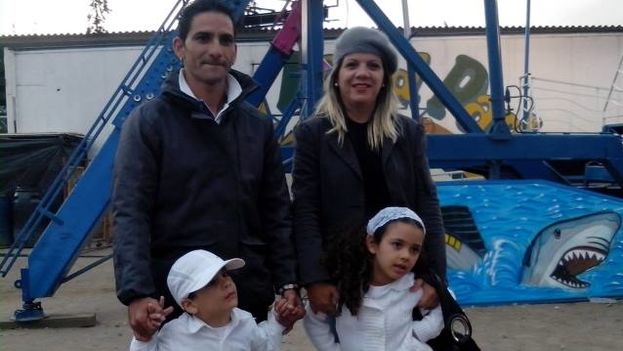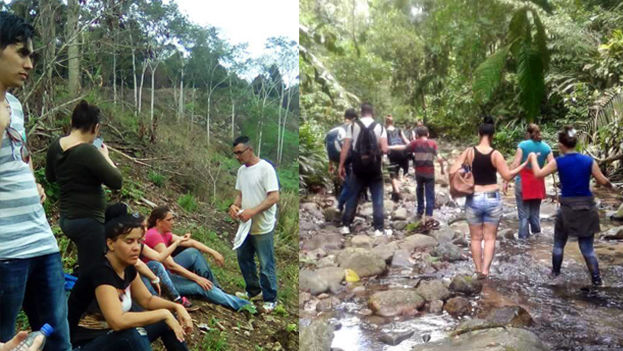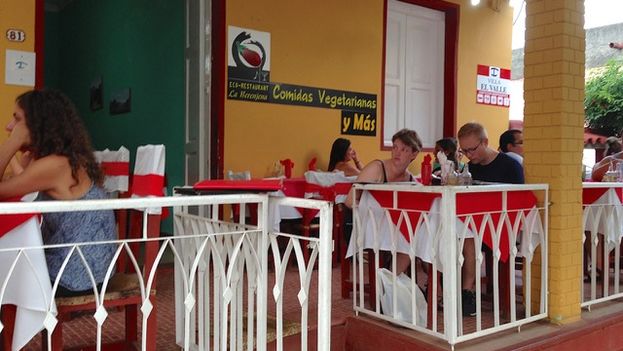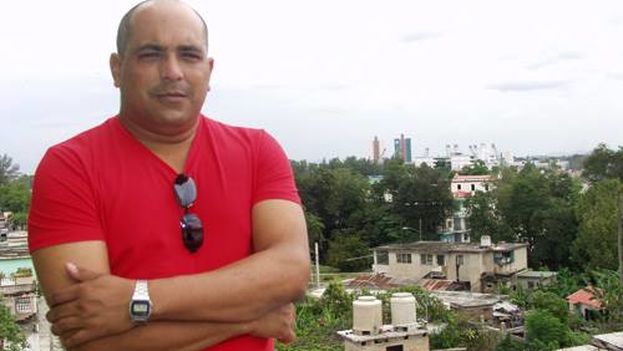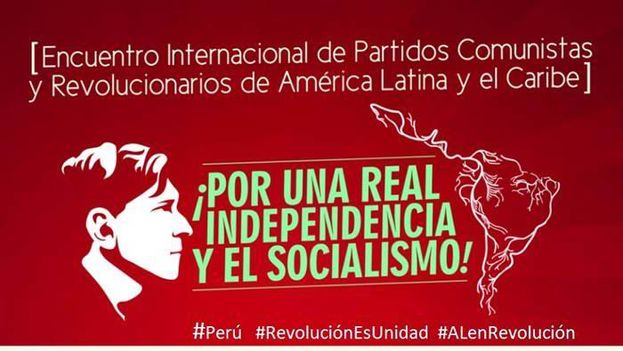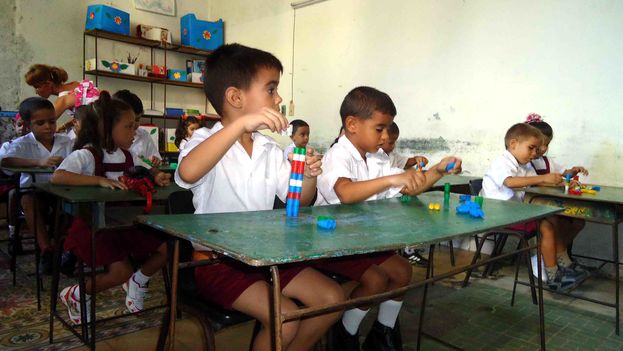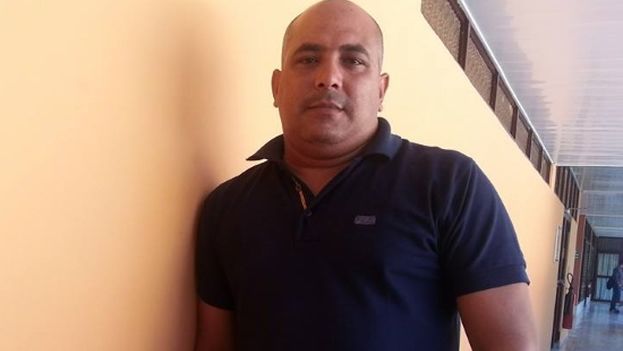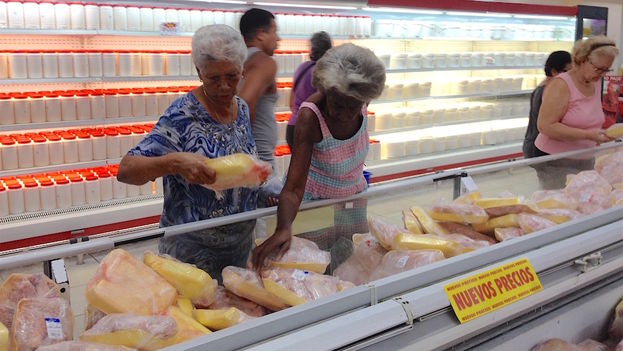
![]() 14ymedio, Yoani Sanchez, Havana, 2 September 2016 – At the dining room table the grandparents are playing with their two granddaughters. They ask them what they would ask the genie for if they happened to stumble on a magic lamp in the corner. “I want a plate full of chicken and French fries,” the littlest one said immediately, while the older said she wanted it to rain candy. Their second wish included ice cream by the ton and the third wish concentrated on endless cheeseburgers.
14ymedio, Yoani Sanchez, Havana, 2 September 2016 – At the dining room table the grandparents are playing with their two granddaughters. They ask them what they would ask the genie for if they happened to stumble on a magic lamp in the corner. “I want a plate full of chicken and French fries,” the littlest one said immediately, while the older said she wanted it to rain candy. Their second wish included ice cream by the ton and the third wish concentrated on endless cheeseburgers.
National television broadcasts a report about a popular camping site that has been renovated and reopened to the public this summer. One customer smiles at the camera and says, “The food is good.” The administrator of the recreation spot enumerates the dining options and promises that culinary offerings “suited to all pocketbooks and well prepared” await whose who book one of the cabins scattered in the countryside. continue reading
Education Minister Ena Elsa Velázquez, calls for moral and material respect for teachers to avoid the exodus that profession is suffering as teachers quit for other—more lucrative—jobs in other areas. The official recommended holding agricultural fairs next to school buildings, with sales of pork and produce, so the educators can buy food after work.
An opponent of the Castros visiting a market in Miami recorded a video in which he says the only way his compatriots would be willing to “overthrow the dictatorship” would be if they were promised that the shelves would then be full of the same variety of beers on offer in Miami. The well-known dissident lists the prices, the quantity of food available in pounds and the high quality of the products that star in his video.
A nouveau riche couple books two nights all-inclusive at a Varadero hotel. They manage to polish off a lunch with two pork steaks each, a serving of fried beef, several helpings of rice and beans, along with a pile of succulent shrimp and lobster. Returning home they fail to describe a single example of the scenery they admired during their trip.
When was it that we Cubans came to be ruled by our stomachs? At what moment were we conquered by a mouth that swallows and a brain that thinks only of food? Can our dreams and desires be reduced to filling our bellies, whetting our appetites and cleaning our plates?
Unfortunately, yes. Decades of shortages and economic hardships have brought us to a plane of survival where food is the center, obsession and goal of millions of people who inhabit this island. That obfuscation often does not allow us to see beyond, because “with an empty belly, who will think about politics,” as any materialistic philosopher would say.
The problem is that “hungry once, always hungry.” When a tongue of flame rises into the esophagus, when a few grains of rice are at the center of wet dreams and some crumbs of bread are the be-all and end-all, it is immoral to talk about something beyond whetting the appetite.
We have been condemned, as a people, to mastication, gastric juices and digestion. In the process we have lost what makes us human and become creatures of the feedlot, more focused on the dinner bell than on our rights of free association or expression.
We are like Pavlov’s dog, whoever brings us a plate of food will make us react and salivate. How sad!

